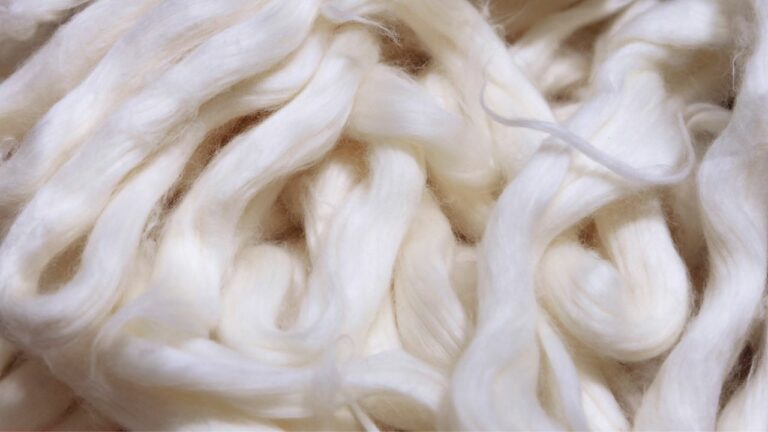The Benefits of Organic Cotton: Why Choose Organic Over Regular Cotton
You’ve probably noticed a surge in products labeled as “organic”, especially when it comes to cotton. But did you know that organic cotton is responsible for 46% fewer carbon emissions compared to its conventional counterpart?
This article will dig deeper into the benefits of choosing organic over regular cotton — from decreased environmental impact to increased health advantages. Ready to make more sustainable choices in your wardrobe? Dive on in!
Key Takeaways
- Organic cotton has 46% fewer carbon emissions and reduces water pollution compared to regular cotton.
- Choosing organic cotton products can improve people’s health by reducing exposure to harmful chemicals and providing hypoallergenic options.
- Organic cotton promotes sustainable farming practices, supports farmers, and contributes to a more durable and long-lasting wardrobe.
Organic Cotton Vs Regular Cotton
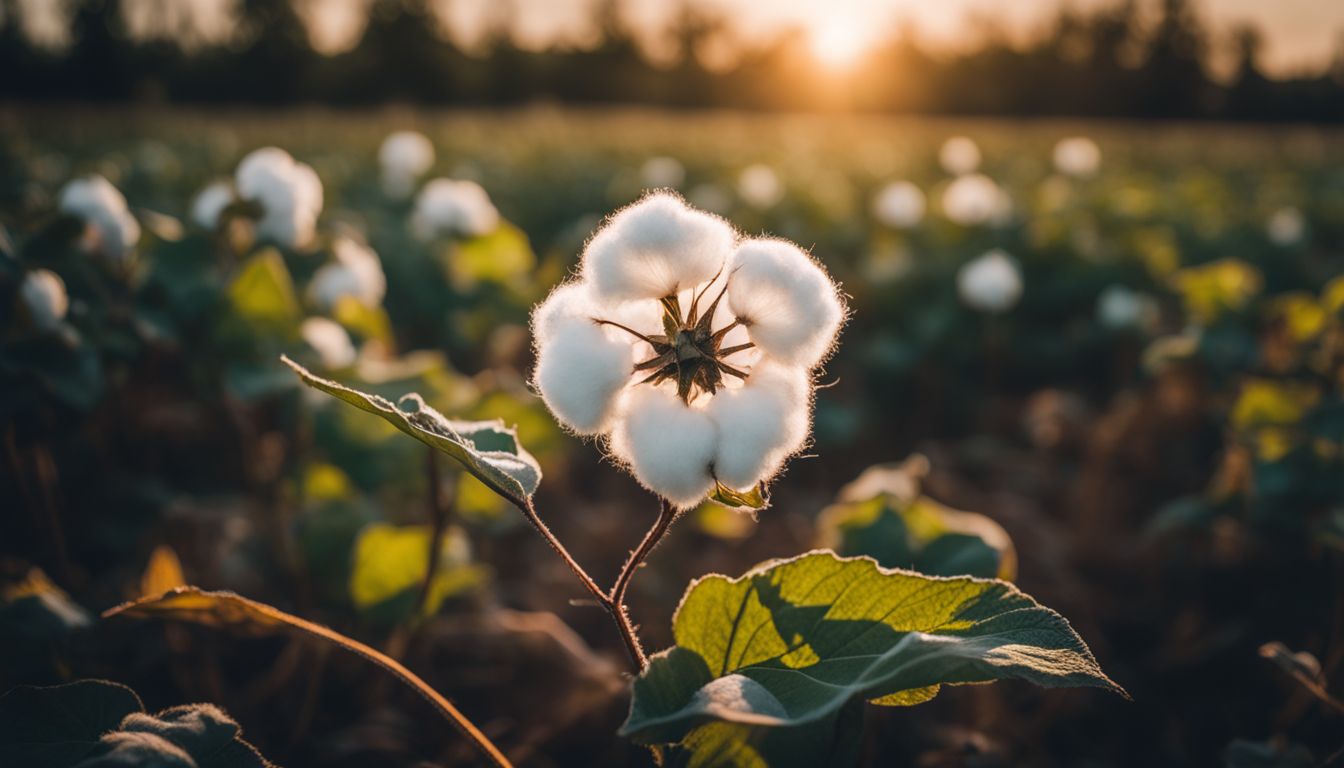
Organic cotton is a type of cotton that is grown without the use of harmful pesticides or synthetic fertilizers, whereas regular cotton is conventionally grown and often treated with chemicals throughout its production process.
What is Organic Cotton?
Organic cotton comes from plants not changed by people. It grows in healthy soil and does not use bad chemicals or poisons. Machines do not touch this cotton, only human hands. This way of making cotton is good for our planet too!
Differences between Organic and Regular Cotton
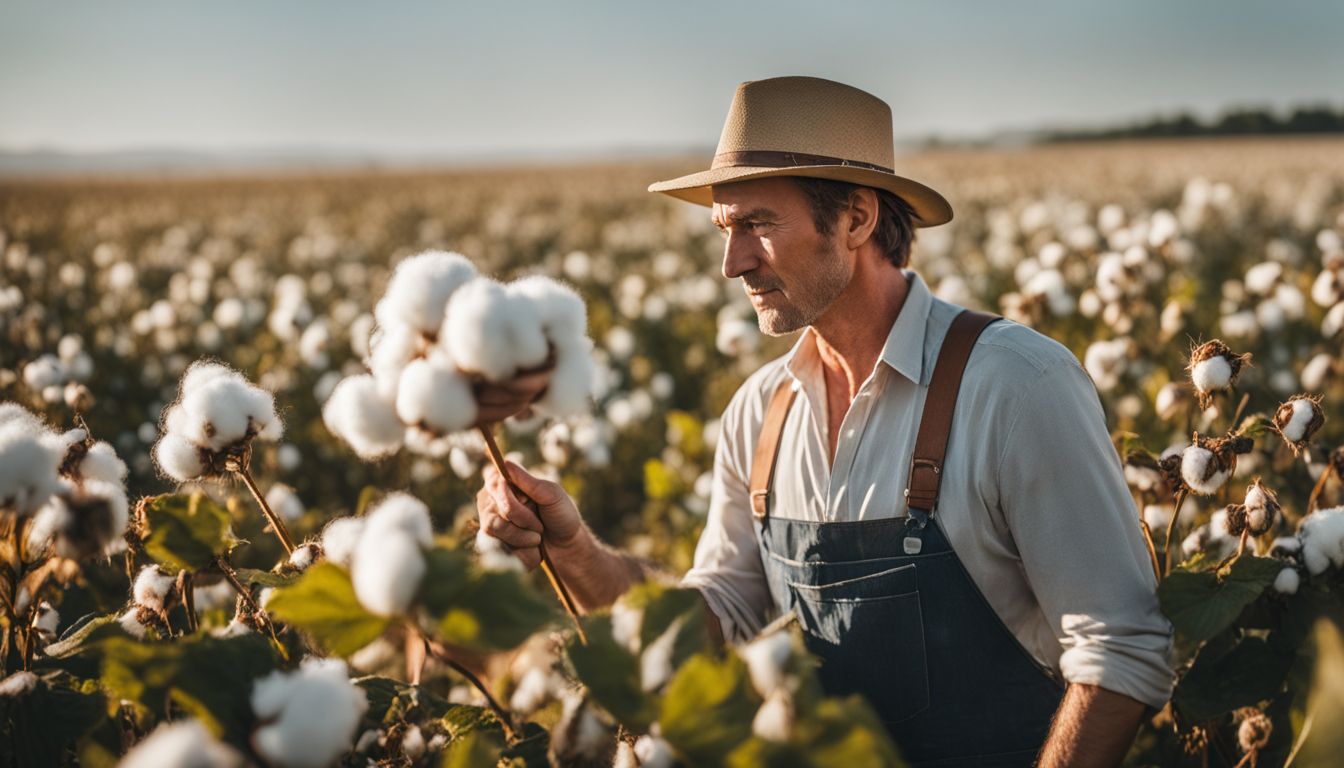
Organic and regular cotton are different in their growing processes, impacts on the environment, and effects on human health. Here’s a quick comparison:
| Aspect | Organic Cotton | Regular Cotton |
|---|---|---|
| Growing Process | Organic cotton is grown using methods and materials that have a low impact on the environment. It’s cultivated without the use of toxic pesticides and synthetic fertilizers. | Regular cotton is grown with genetically modified seeds and sprayed with a large amount of insecticides and pesticides. It relies heavily on artificial substances. |
| Environmental Impact | Organic cotton farming practices save water, reduce carbon emissions by 46%, and prevent water pollution. It is a sustainable choice that combats climate change. | Regular cotton farming uses up to 20% of the world’s insecticides and over 10% of the world’s pesticides. It’s a major contributor to water pollution and has a high carbon footprint. |
| Health Impact | Organic cotton products are softer and safer for the skin due to longer fibers. It is hypoallergenic and eliminates allergies and skin irritations. | Regular cotton may cause allergies and skin irritations due to the chemicals used during cultivation and production. |
| Longevity | Organic cotton is more durable and can last longer than conventional cotton. | Regular cotton tends to wear out faster due to the short fibers caused by high chemical usage. |
| Support for Farmers | Organic cotton production supports farmers in feeding their families and promotes sustainable practices. | Regular cotton does not provide the same benefits to farmers as it is often produced in large quantities by multinational corporations. |
Environmental Impact
Organic cotton has a significantly lower environmental impact compared to regular cotton. This is because organic farming practices used in cultivating organic cotton help reduce water pollution and pesticide use.
Organic cotton production also supports healthy soil conservation and prevents soil degradation. In addition, organic cotton is grown without the use of genetically modified organisms (GMOs) or synthetic chemicals, making it a more sustainable choice.
By choosing organic over regular cotton, we can contribute to reducing carbon emissions, protecting water resources, and promoting healthier ecosystems.
Benefits of Choosing Organic Cotton

Organic cotton offers numerous benefits, including improved health for people due to its hypoallergenic properties and reduced exposure to harmful chemicals. It also benefits the Earth through sustainable farming practices, reducing environmental impact and promoting soil conservation.
Additionally, organic cotton is known for its durability and longevity compared to regular cotton.
Better for People (health benefits, hypoallergenic)
Organic cotton is better for people’s health. Unlike regular cotton, organic cotton is grown without the use of harmful chemicals and pesticides. This means that when you choose organic cotton products, such as clothing or bedding, you are reducing your exposure to potentially toxic substances.
Organic cotton products are also hypoallergenic, which means they are less likely to cause allergies or irritate sensitive skin. The longer fibers in organic cotton make it softer and safer for your skin, providing a comfortable and healthy option for everyone.
So by choosing organic cotton, you can protect both yourself and the environment.
Better for the Earth (sustainable farming practices, reduced environmental impact)
-814adb53a7-275832062.jpg)
Organic cotton is better for the Earth because it promotes sustainable farming practices and reduces environmental impact. When cultivating organic cotton, farmers use methods that prioritize soil health, natural predators, and water conservation.
They avoid using harmful chemicals like pesticides and fertilizers, which helps to prevent water pollution and protect the environment. Additionally, organic cotton production has a lower carbon footprint compared to regular cotton, resulting in fewer carbon emissions.
By choosing organic cotton products, we can support healthier farming practices and contribute to a more sustainable future for our planet.
[Facts used:
– Organic cotton is responsible for 46% fewer carbon emissions compared to regular cotton.
Durability and Longevity of Organic Cotton

Organic cotton is not only better for the environment and our health but also offers impressive durability and longevity. Unlike regular cotton, organic cotton products are made from longer fibers which make them stronger and more resistant to wear and tear.
This means that your organic cotton clothing, bedding, and other products will last longer without losing their quality. Additionally, research shows that organic cotton is more durable than conventional cotton due to its sustainable farming practices.
So when you choose organic cotton, you’re not only making an eco-friendly choice but also investing in long-lasting and high-quality products that will stand the test of time.
Certifications and Legitimacy

Identifying legitimate organic cotton certifications is crucial for ensuring you’re making an informed choice. Don’t fall victim to greenwashing – learn how to discern the real deal from misleading claims.
How to Identify Legitimate Organic Cotton Certifications
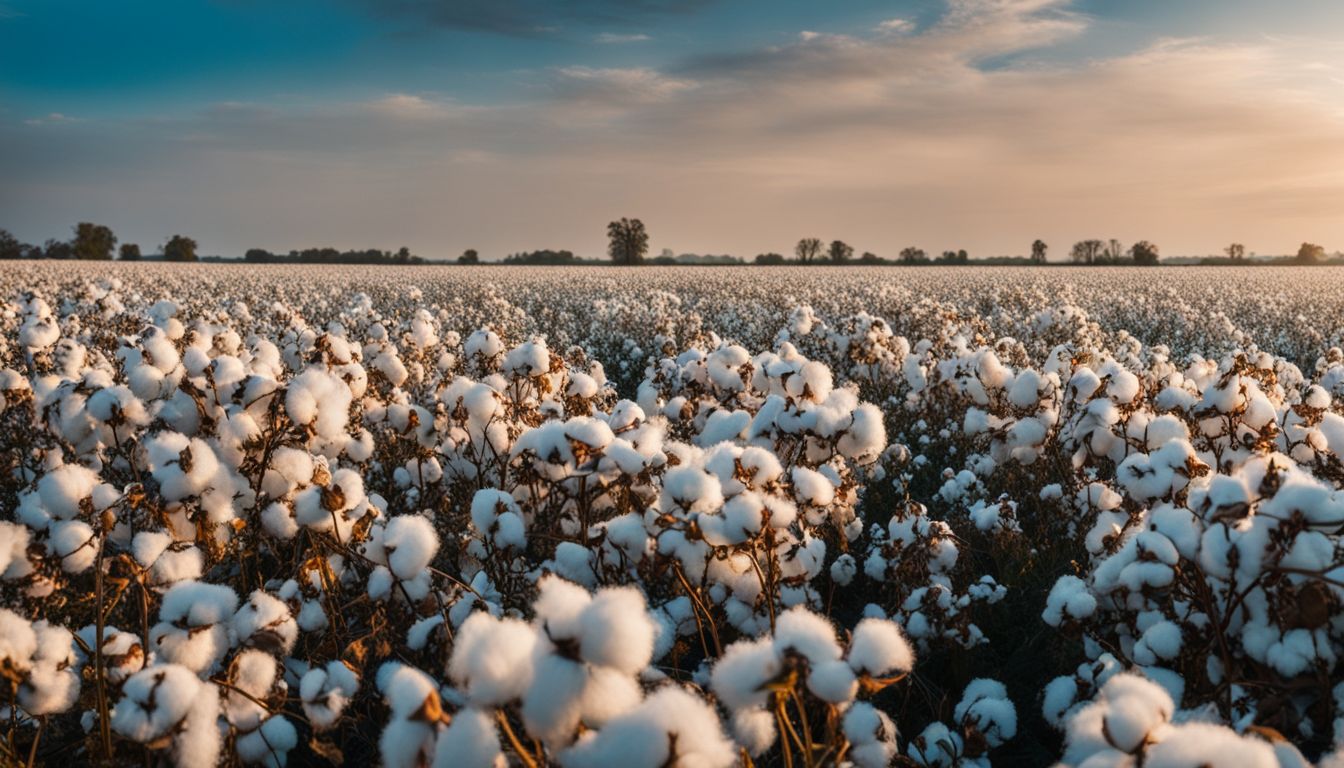
Organic cotton certifications help consumers identify genuine organic products. Here’s how to spot legitimate certifications:
- Look for recognized logos: Check for logos of well-known organic certification organizations like Global Organic Textile Standard (GOTS) or Organic Content Standard (OCS).
- Read labels carefully: Look for labels indicating that the product is made with 100% organic cotton or certified organic materials.
- Research certification requirements: Familiarize yourself with the criteria that certifying bodies use to validate organic claims, such as limits on pesticide use and requirements for soil health.
- Verify certification claims: Visit the website of the certifying organization mentioned on the label to confirm if it is legitimate and trustworthy.
- Seek transparency: Legitimate certifications will provide detailed information about their standards, audits, and enforcement procedures.
- Support transparent brands: Choose to buy from brands that are committed to sourcing verified organic cotton and have a transparent supply chain.
Greenwashing in Organic Cotton

Greenwashing in organic cotton refers to the deceptive marketing practices employed by brands and companies to make their products seem more eco-friendly than they actually are. They may claim that their cotton is organic when it’s not, or exaggerate the environmental benefits of their production methods.
This can mislead consumers who are trying to make sustainable choices. It’s important for buyers to be aware of legitimate organic certifications and look for transparent information from brands about their farming practices and sourcing.
By doing so, we can support truly sustainable and ethical cotton production that minimizes harm to the environment and promotes the well-being of farmers and workers.
Organic Cotton Clothing Brands

Discover the top brands offering high-quality organic cotton products that are both stylish and eco-friendly. Read more to find your perfect sustainable wardrobe.
Options for Purchasing Organic Cotton Products
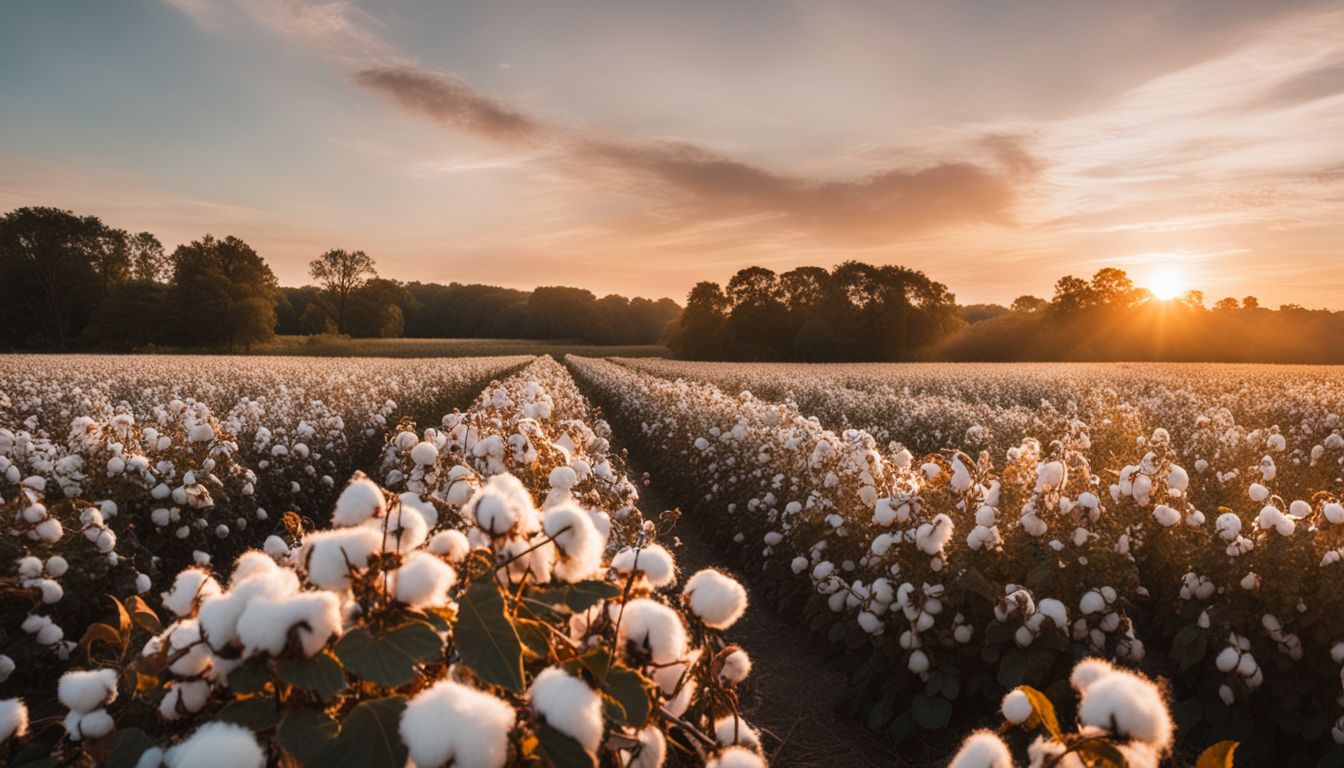
You can find organic cotton products in various places:
- Local stores: Many local clothing and home goods stores carry organic cotton products. Look for labels or ask store employees for assistance.
- Online retailers: Numerous online retailers specialize in organic and sustainable products, including clothing made from organic cotton. You can browse their websites and place orders conveniently from home.
- Farmers markets: Some farmers markets have vendors who sell organic cotton products, such as clothing, bedding, and towels. Check out your local farmers market to see if they offer these items.
- Eco-friendly boutiques: Eco-friendly boutiques often focus on selling sustainable and organic products, including those made from organic cotton. These boutiques are a great place to find unique and high-quality options.
- Directly from brands’ websites: Many brands that produce organic cotton products have their own websites where you can purchase directly from them. This ensures that you are getting authentic, certified organic cotton items.
- Organic farming practices used in cultivating organic cotton help in saving water.
- Organic cotton helps in reducing pesticide use and preventing water pollution.
- Choosing organic cotton is a sustainable choice that combats climate change.
- Research supports the measurable benefits of organic cotton in terms of pesticide reduction and water conservation.
Conclusion: Why Choose Organic Cotton
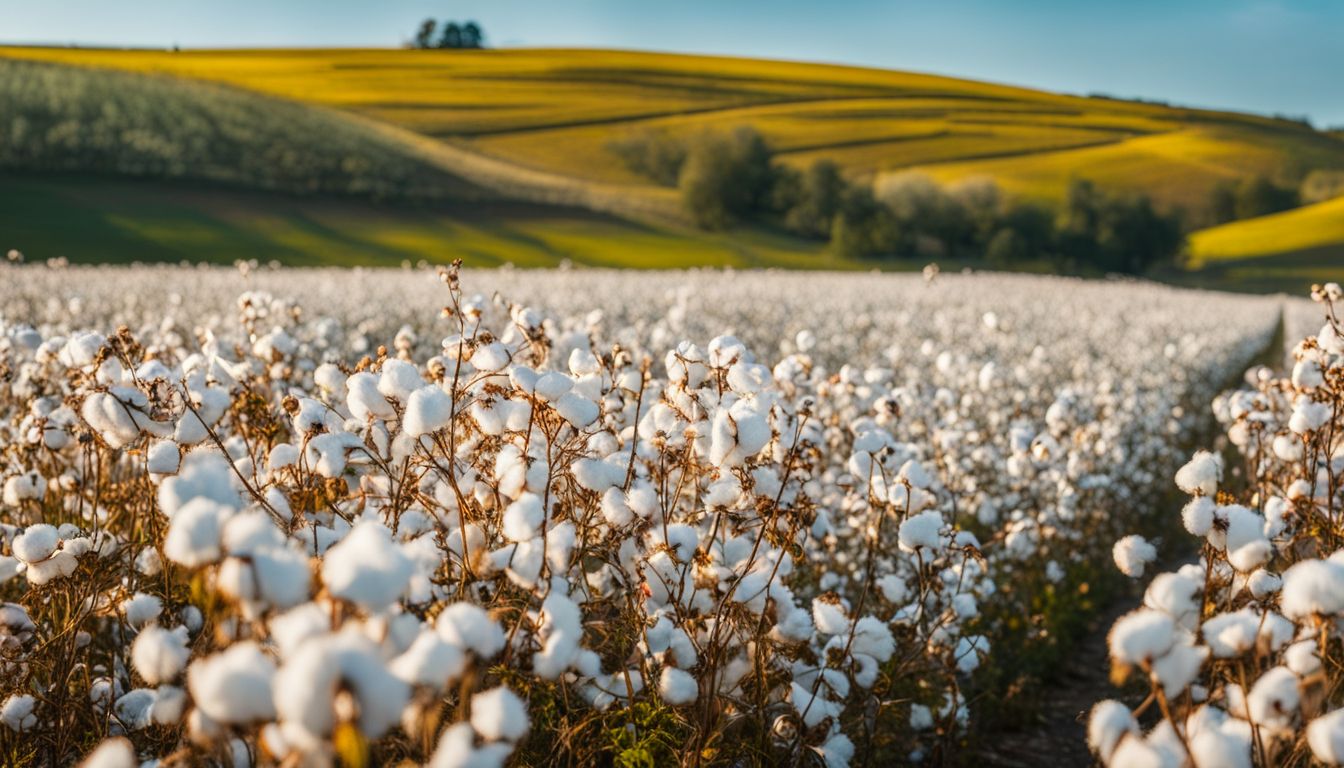
In conclusion, choosing organic cotton over regular cotton is a wise decision. Not only does it have numerous benefits for people’s health and the environment, but it also supports sustainable farming practices.
By opting for organic cotton products, we can reduce carbon emissions, promote soil conservation, and contribute to a healthier planet for future generations.
FAQs
1. What is organic cotton?
Organic cotton is grown using methods that do not involve synthetic fertilizers or pesticides, making it a more sustainable and environmentally-friendly choice.
2. Why should I choose organic cotton over regular cotton?
Choosing organic cotton helps support better environmental practices, promotes healthier farming communities, and reduces the exposure to harmful chemicals found in conventional cotton production.
3. Is there a difference in quality between organic and regular cotton?
No, there is no significant difference in quality between organic and regular cotton. Organic cotton offers the same softness, durability, and breathability as conventional cotton.
4. Are there any benefits for my health by choosing organic over regular cotton?
Yes, choosing organic cotton can reduce your exposure to potential harmful chemicals found in conventional pesticide-treated crops which may have adverse effects on human health.







